Eric Garcia recently published We’re Not Broken: Changing the Autism Conversation. It is worth reading for anyone interested in autism and/or neurodiversity. Most of the book is individual stories that illustrate the different lives of autistics in our strengths, our weakness, where society appreciates our contributions and where it does not. The chapters are organized thematically around topics like housing or employment. Most of this was stuff I already knew of stories that paralleled similar stories that I’d seen before, but his roadmap ahead at the end was new.
I will divide this review into four sections: a few examples from the book, the roadmap ahead, a few critiques of this otherwise good book, and a final judgment.
Examples of Neurodiversity in Garcia’s Book

Eric Garcia spends the majority of his book on these examples. I think they would be enlightening for someone unfamiliar with neurodiversity. But I have heard similar things to most before.
Garcia speaks about his own experience: “When I got to college, the ADA meant that I could have reasonable accommodations -like extra time on tests and separate locations to take them – which meant I never had to worry about my environment; I only had to worry about my studies. These policies were not charity; they allowed me, and scores of other disabled people, access to the same freedom that nondisabled Americans take for granted.” (6-7)
He also notes how he struggles with a lot of social situations even though he is now considered “successful.” Referring to networking events, he notes: “It isn’t just the difficulty of navigating conversations and determining if someone wants to be my friend or if they’re just trying to get something out of me; often, these parties are in cramped spaces with blaring music and lights that are either far too bright or too dark for me to make out anyone’s face.” (197)
He cite Tara Cunningham talking about how autistic employees are often not just more efficient but substantially more (170% more). This can create resentment from neurotypical employees. (63) This is the kind of office politics we are often particularly bad at navigating. At the same time, other autistics are completely unable to work as this creates too much of a burden for some. (66)
Garcia points out how a lot of the focus in health care and housing is misguided. It is easy for an autistic to get institutionalized despite the fact it costs over 4x more than helping them out in the community. He explains, “Despite jokes about ‘adulting.’ nobody is going to force my neurotypical friends to move back in with their parents if they forget to do their laundry. If they need a nanny to care for their kids, a maid to clean their house, or a gig worker to do daily tasks, they won’t be seen as incomplete humans… To be disabled is to constantly fear that any bad decision you make will cost you your autonomy, particularly when there’s a historical precedent for institutionalization. It makes your freedom all the more precarious.” (108) Likewise, he repeats the issues with most research going into causes of autism rather than helping autistics live with only 2% of research on helping us beyond our teens (128)
The Roadmap
What I think Garcia did better than other works on neurodiversity is what I would refer to as a roadmap.
He begins by noting how the discussion has already begun to change. He states, “Media discourse around autism has shifted. A 2020 study in Disability and Society surveyed 315 articles from the Washington Post from the beginning of 2007 to the end of 2016. The study found that over the decade of articles, there were increased mentions of neurodiversity and more inclusions of autistic people’s perspectives; articles describing autism’s strengths and discussing accommodations also increased, and there were fewer mentions of autism’s deficits, causes, and risk factors.” (201)
He noted how when he went to college, the “autism” group was more a charity and not a community of autistic individuals as none in leadership were autistic so such changes are new.
Near the end, he quotes some things from a Frederick Douglas speech at the close of the civil war and ends with eh following two paragraphs.
Douglas concluded his passionate oration on voting rights by asking, “What shall we do with the Negro?” to which he had a simple response: “Do nothing with us.”
Here now, I’d like to make this same request for the autistic community. People who are not autistic often assume they are acting benevolently by hand-holding those on the spectrum. But despite their best intentions, there is an element of condescension in these actions because it assumes that nonautistic people know what’s best. But it is autistic people who live with the condition of autism – for all of its positives and negatives – as well as with the consequences of any collective action meant to help them. If there is going to be policy that has seismic impact on their lives, they deserve to have a say in it, no matter how they communicate. Furthermore, while many parent advocates, clinicians, and other ‘experts’ may have good intentions, centering their voices continues to give them power that should lie with the autistic community. To achieve any true sense of freedom, autistic people need to take this power back. (215)
Defects
Eric Garcia has two minor issues which need to be kept in mind in part of the book.
First, he is a political reporter, so at times a few things came off a little in that vein. Knowing this going in, I did not really struggle but this can also affect this emphasis in parts.
Also, some aspects of the chapters of sexuality and gender take the popular secular view unquestioningly. There are some good things in that we should see autism in girls and allow autistic people to have the same kinds of romantic and sexual relationships we allow everyone else, but I would take issue with some ways sexuality and transgenderism was presented. I don’t expect his to present Catholic teaching but even as a secular piece, a few things are lacking.
Overall
I would give this 4/5 stars. It is a good book worth reading for stories around neurodiversity. Eric Garcia presents a clear vision for going forward as autistics. I got it from the local library but you can buy it from Amazon.

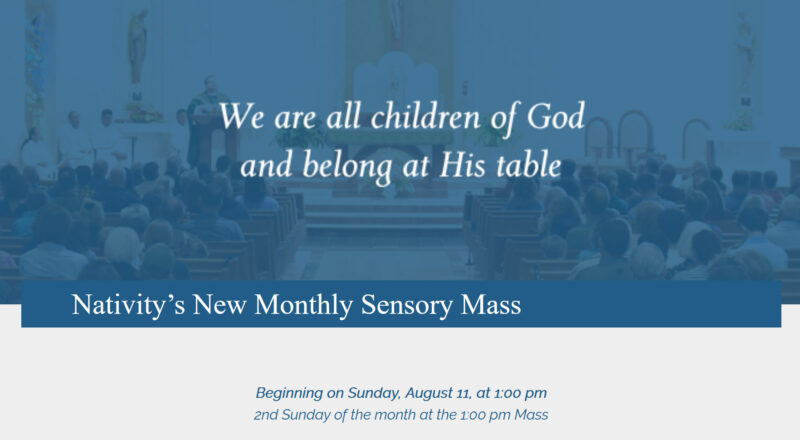
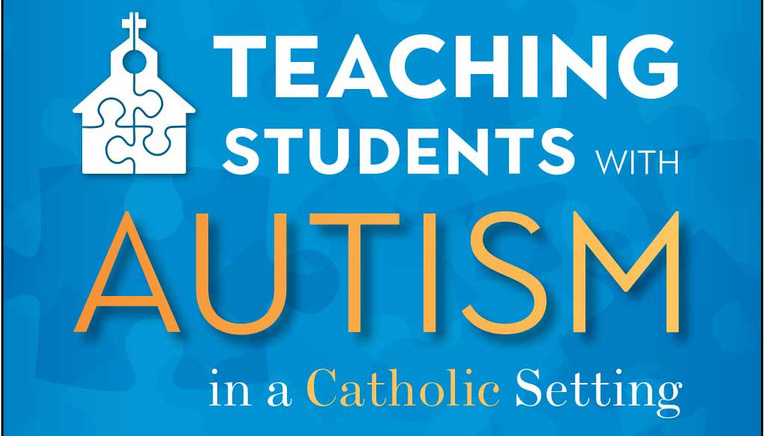

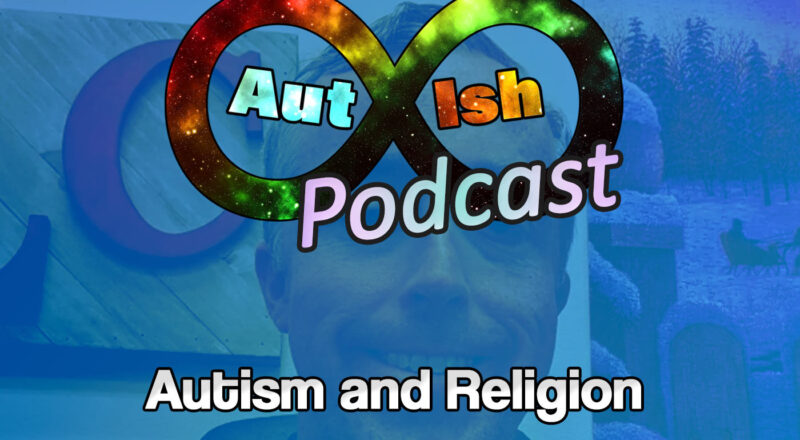
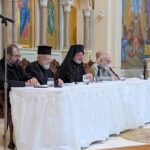
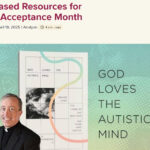



This was an interesting review. I want to point out that (based on what internet “asexual” information and activist social media users state) “asexual” is a new LGBTQ term based on the framework of “homosexual” and “heterosexual” wherein “asexual” means “neither sexually attracted to males nor females” but that has nothing to do with chastity or whether someone has sex or not. According to self described “asexuals”, “asexual” does not necessarily imply refraining from sexual behavior any more than “homosexual” or “heterosexual” imply that. It does not mean celibate. I think we probably need to take it with a grain of salt like we take “heterosexual” or “cisgender” with a grain of salt (or reject these terms), but it’s a difficult challenge today to engage with people who increasingly often use such categories and language and have to be met where they are. But I don’t see how someone could understand Christian anthropology without being converted away from the LGBT thought categories. In biology, I believe sexual still means reproduction via recombination of genetic material from male and female gametes, and asexual means other kinds of reproduction like budding or cloning!
Oops typo. I hit the A with the S, but did not catch it. My point was that autism alone should not be an obstacle to marriage or similar.
ah okay! Obviously either marriage or celibacy should be open to autistics. While I personally do not think that most autistic people are called to marriage, I have never heard of Catholics challenging the validity of autistics’ marriages if they are church marriages. But in our context we also need to challenge the conception that autistic people’s or disabled people’s celibate vocation isn’t valid or valuable. Vocations culture is (and for “public” canonical vocations not without reason) far, far more “ableist” than marriage prep. Young adult “vocational discernment” sets you up for rejection and abandons you. A while back I saw fliers posted in my neighborhood for a picnic meant to celebrate and appreciate transgender people. I thought, when has the Catholic community ever in any way celebrated or valued chaste celibate laity as such, or even provided ways to be in contact with other people with the same vocation?
Not so much in a Catholic context, but I’ve seen a number of “autism warrior mom” types presuming their children were incapable of seeking out romance as adults. That is what I refer to there.
okay, maybe I am wrong partly about Catholic marriage and autism, I did a search and found that autism is cited as sometimes being grounds for marriage nullity. But I don’t think the barriers necessarily come at the time of preparing for marriage just because of an autism diagnosis.